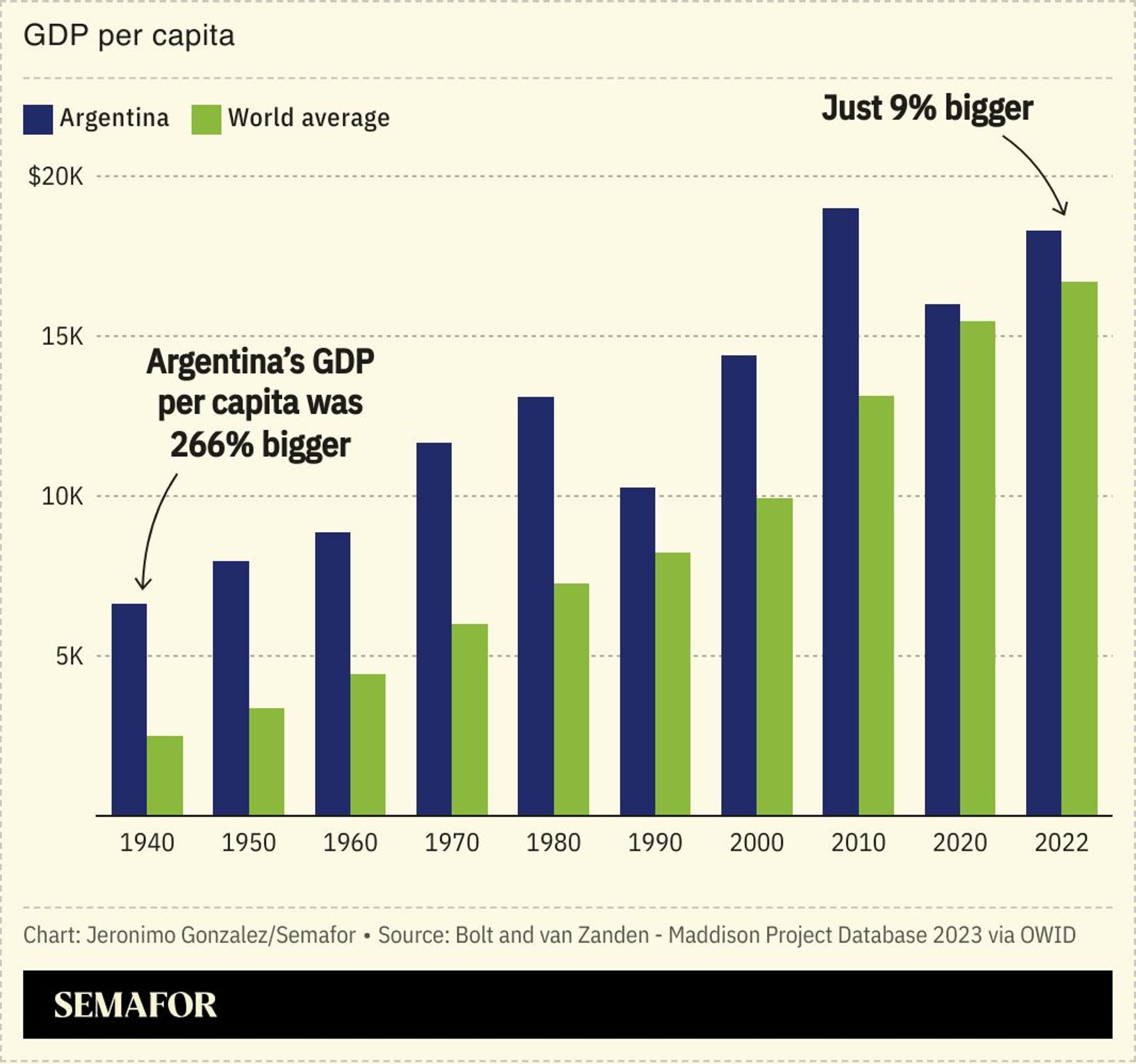The News
The World Bank and the Inter-American Development Bank agreed to provide Argentina with $8.8 billion in financing, becoming the latest financial institutions to back President Javier Milei’s economic agenda..
Since taking office 11 months ago, Milei has instituted a suite of austerity measures, including firing thousands of civil servants and slashing subsidies — moves one international financial official described to the Financial Times as “the most drastic fiscal adjustment ever seen in a peacetime economy.” The cuts have resulted in Argentina reaching its first primary budget surplus in 16 years, and quelled inflation.
However, cuts to subsidy programs — on which a large part of the economy relies — have pushed millions into poverty. Milei remains undeterred: “We’re setting the bases for strong economic growth.”

SIGNALS
Milei fulfills campaign vow to take a ‘chainsaw to the state’ but doubts remain about sustainability
The international development bank support underscores Milei’s pivot from radical to pragmatist: Since taking office, the self-described “anarcho-capitalist” has implemented a largely conventional, if hawkish, austerity program that has “eradicated” the government’s long-standing deficit, an achievement that suggests he has lived up to a campaign promise to take a “chainsaw to the state.” However, Argentina is entering a deepening recession, and while Milei remains bullish on future growth, a former finance minister told the Financial Times that “the government is too triumphalist… It’s admirable what Milei achieved on the fiscal side this year, but there’s a big question about how sustainable it is.”
Brunt of Milei’s economic ‘shock therapy’ b
Though Milei’s moves have received some international backing, his domestic disapproval rating stands at more than 50%, and has consistently gotten worse over the last four months, Brazilian news outlet O Globo reported. Even some of Milei’s own supporters consider his measures “excessive,” consultancy firm Proyección told the outlet, with the brunt of his policies being felt by the poorest Argentinians. Argentina’s poverty rate has climbed to more than 50%, September figures showed, a marked increase since Milei took office, the BBC reported. The president faces opposition, particularly from trade unions, which have to led mass protests against the austerity measures. The dissatisfaction is fueling Milei’s political opposition: One Peronist lawmaker said his policy was “battering working families.”

